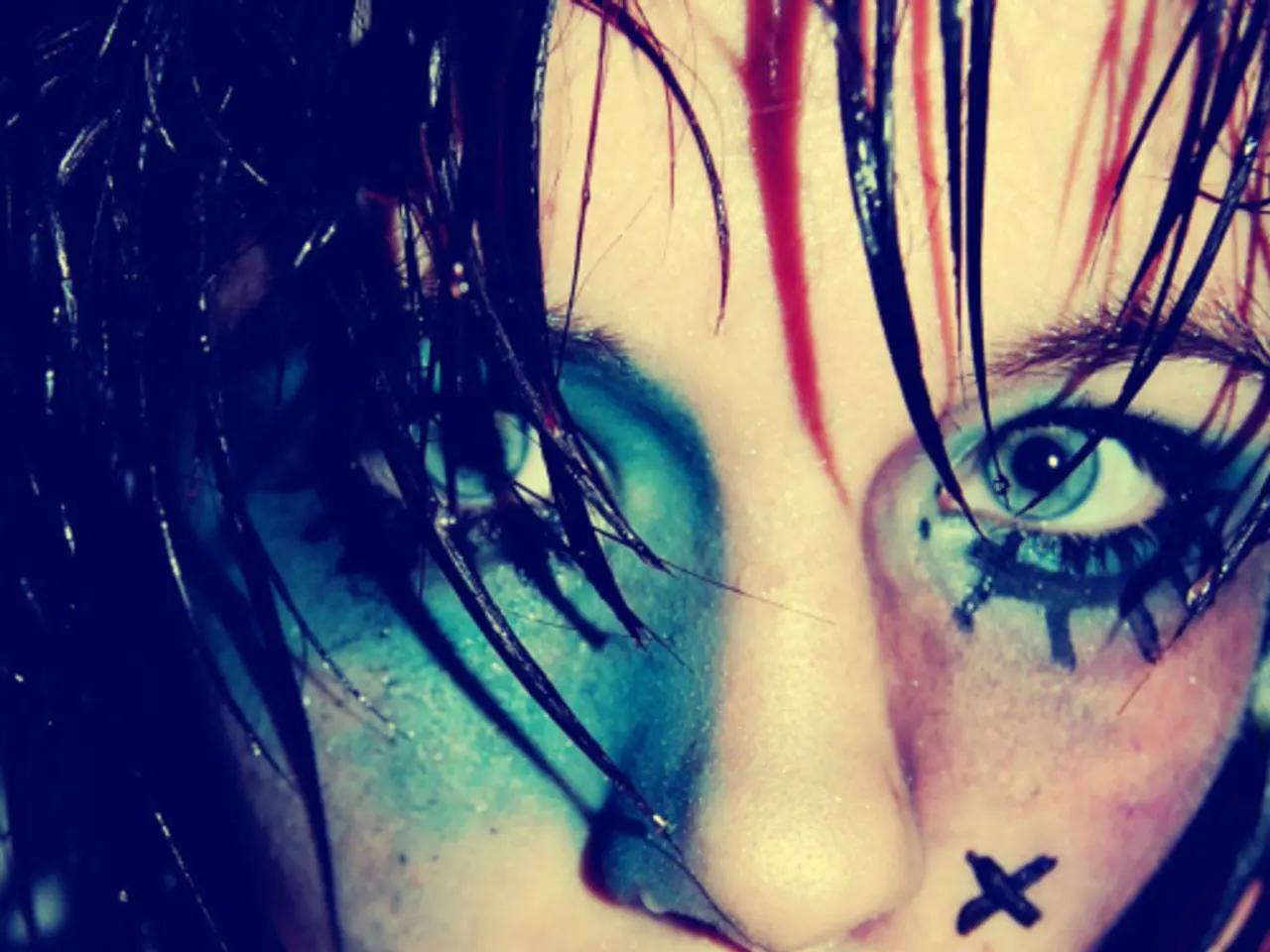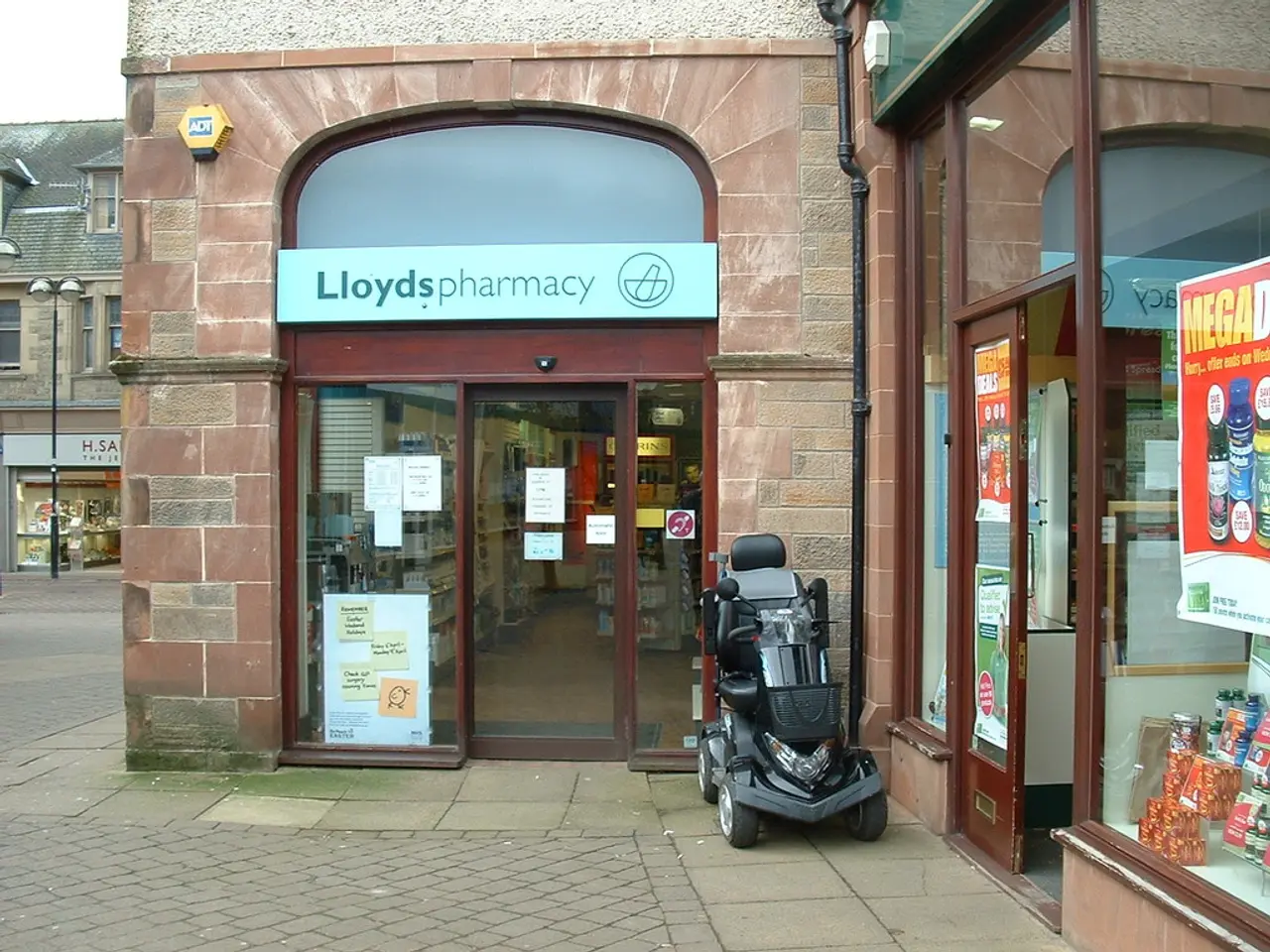Navigating Skin Issues in Your Later Years: A Comprehensive Strategy
In the golden years of life, acne may not be the first thing that comes to mind. However, for some individuals over 50, breakouts can still be a concern. This article aims to shed light on the common causes, signs, and effective treatment options for managing acne in older adults.
Hormonal fluctuations, particularly during menopause, can lead to acne breakouts in this age group. Stress-induced cortisol elevation, dietary factors such as high sugar and dairy intake, and the use of comedogenic skincare products can also contribute to acne in older adults [1][2][3]. Hormonal changes result in increased oil production and clogged pores, while stress raises cortisol, boosting oil production and worsening acne. Diet impacts hormone and insulin levels, and certain skincare products can clog pores and provoke breakouts [1][2][3].
Common signs of acne in individuals over 50 include red bumps, blackheads, or whiteheads. The skin may also feel rough or bumpy, indicating breakouts. A study conducted by Ronnie Marks identified three types of acne common in people in their 50s: persisting acne, chin acne, and sporadic acne [4].
Effective treatment options focus on identifying and addressing underlying causes, using non-comedogenic and gentle skincare formulations, and incorporating proven acne treatments such as topical retinoids, exfoliating acids, and appropriate antibacterial measures. Retinoids can increase skin cell turnover and reduce clogged pores but may cause an initial purging phase lasting 4 to 8 weeks [1]. Maintaining skin hydration is important for older adults, as it can prevent excessive oil production and reduce the likelihood of breakouts. Using a mild, fragrance-free cleanser can help prevent irritation and aggravation of the skin [1][2][3].
For persistent or severe acne, consulting a dermatologist for personalized treatment—including hormonal therapies or prescription medications—may be necessary [1][2][3][4]. In some cases, prescription medications like topical retinoids or antibiotics may be necessary to target stubborn acne. Opting for skincare and makeup labeled as non-comedogenic can decrease the risk of acne, as these products are less likely to clog pores. Resisting the urge to touch the face can help prevent the transfer of oil and bacteria, leading to breakouts.
It is essential to remember that acne can occur at any age, including in the 50s. Managing stress, improving diet, and ensuring good skincare hygiene are also important. For older adults, understanding the causes, identifying the signs, and implementing practical solutions can help effectively control acne breakouts.
Lastly, finding a supportive community of seniors facing similar acne struggles can make the journey more manageable. Low-dose systemic isotretinoin, a powerful acne-fighter, seems to be a game-changer for the more mature acne fighters. Breakouts in your 50s can also make your skin itchy or painful. Seeking professional help when home remedies aren't effective is always recommended.
In conclusion, acne in older adults is a real issue that can be managed effectively with the right knowledge and approach. By understanding the causes, implementing practical solutions, and seeking professional help when necessary, adults over 50 can effectively control acne breakouts and maintain healthy, glowing skin.
Hormonal fluctuations during menopause can provoke acne breakouts in skin-care routines of individuals over 50. Stress-induced cortisol elevation, high sugar and dairy intake, and the use of comedogenic skincare products can all contribute to aging skin blemishes.
Maintaining a skincare routine focused on non-comedogenic, gentle formulations, topical retinoids, exfoliating acids, and appropriate antibacterial measures can help manage acne in older adults, leading to health-and-wellness benefits and maintaining youthful skin.




